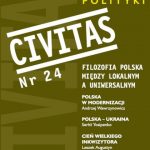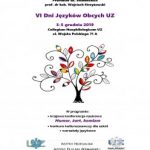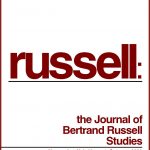Polish historians of Greek philosophy and their journeys to Athens

It comes as no surprise that experts in Greek philosophy and literature, classic scholars, or historians of the ancient world ache to visit the monuments of ancient history and to touch the relics of the Greek past. Many scholars were able to fulfill this dream and to undertake a journey to visit Athens and dwell the streets to search for Socrates or to have a discussion with the spirit of Plato in Academic garden.
Such journeys resulted very frequently in books or papers, memoirs or historical guides, that included their authors’ noble hopes and high expectations, but also their disappointments and grievances that Greek and Athenian reality at the turn of the 20th century could not meet their image of classical beauty and spiritual harmony.
In his paper in Polish, T. Mróz presented the works of four Polish authors who were experts in Greek literature and philosophy, who published extensively on this subject and who were sufficiently wealthy to travel to Greece, and to Athens in particular. In chronological order of their journeys, they are: Wojciech Dzieduszycki, Wincenty Lutosławski, Tadeusz Sinko and Władysław Witwicki. Their journeys took place between 1874 and 1937.
The paper can be downloaded here, and “Civitas” table of contents is here in English and here in Polish.
Lewis Campbell and his Plato

A paper on Lewis Campbell (1830-1908), who was an iconic figure of St Andrews and Scottish Platonism, appeared in a collection of papers from an International Society for Neoplatonic Studies annual conference in Olomouc in 2017. The volume was published in 2019 and includes papers on ancient, mediaeval and modern interpretations of Platonism (contents of the book on the Prometheus Trust website). In his paper T. Mróz examined the history of the most significant works by Campbell, his studies and editions of the dialogues, and attempted to present the consequences of his conclusions for interpreting Plato’s philosophy.
The paper is free to download from the University’s repository here.
2019: the last talk (before the 2020 pandemic)

The Days of Foreign Languages at the University of Zielona Góra have already become an annual tradition. In 2019 they were devoted to humour, joke and comedy, and AΦR was there too. A talk on the examples of Plato’s humour in various Polish translations was delivered by Tomasz Mróz.
Selected passages from the Eutyphro, Apology, Republic, and Cratylus in various Polish translations were compared, with occasional help of Plato translations into other languages, that is, German (F. Schleiermacher, W.S. Teuffel), English (H.N. Fowler, H. Tredennick, G. Grube, P. Shorey, W.H.D. Rouse, A.D. Lindsay, D. Lee, F. M. Cornford), Russian (M.S. Solovyov, A.N. Yegunov), Italian (G. Giardini) and, last but not least, Ukrainian (Y. Kobiv).
The stress was laid on the issue of who of the translators was able to discover Plato’s humour and to render it properly into Polish. Not to mention the more general conclusion on Plato’s comic talents, for philosophy has never been an exclusive bussiness of sad and old men with beards
Lutosławski on Russell’s Plato

A paper by Tomasz Mróz titled Letters of Bertrand Russell and Wincenty Lutosławski on Immortality, Matter and Plato was published in “Russell. The Journal of Bertrand Russell Studies” (1, vol. 40, 2020, pp. 27-42; DOI: https://doi.org/10.15173/russell.v40i1.4417).
The paper presents letters between Wincenty Lutosławski and Bertrand Russell, but what seems to be the most interesting regarding AΦR are the post-war letters on Russell’s History of Western Philosophy, for despite their different philosophical positions, Lutosławski’s opinion on this work as a whole was favourable, in particular the chapters on Plato. Such an assessment was the exception rather than the rule for that book, and knowing Lutosławski’s general recognition in Platonic studies, Russell forwarded the letter to his publisher.
Full text can be downloaded here, from the journal’s website.

Recent commentaries